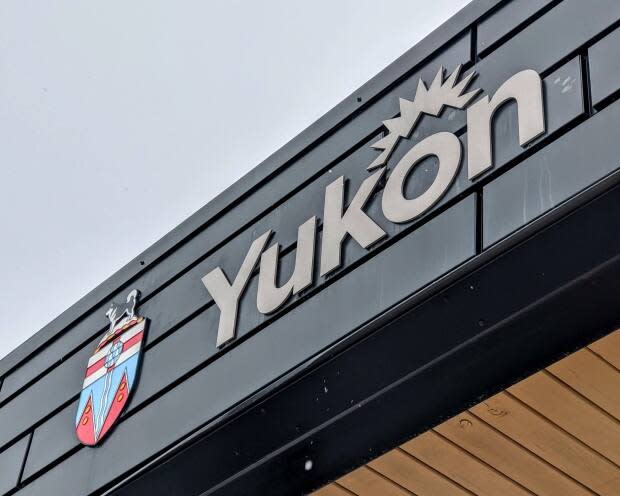Yukon government implementing First Nations procurement policy

The Yukon government is implementing a new policy that aims to give First Nations' businesses a leg up when it comes to bidding on government contracts.
The first phase of the Yukon First Nations Procurement Policy is now in effect.
The policy looks to award 15 per cent of all territorial procurement contracts to Yukon First Nations businesses, and incentivizes subcontracting or partnering with those businesses.
The Council of Yukon First Nations and the Yukon government say it's a step in the right direction.
"By empowering Yukon First Nations to contribute more to the economy, we can unleash the territory's full potential," said Richard Mostyn, minister of Highways and Public Works.
Policy creates opportunities for all businesses, says minister
Mostyn says the new policy creates opportunities for all Yukon businesses.
But some business owners have expressed dissatisfaction with the policy.
They say the policy doesn't make the playing field level for all Yukon businesses bidding on government contracts.
Mostyn says he's heard of only a few businesses that oppose the new policy.
"I really have to say virtually everybody I have spoken to, and there have been very few exceptions, have sincerely wanted to see this policy succeed," said Mostyn.
It will attract more investment into the territory and more opportunities for everyone. - Albert Drapeau, executive director of the Yukon First Nation Chamber of Commerce
One of the most complex measures under the new policy is bid value reductions.
Bid value reductions are a mathematical way of re-ranking bids to reflect increased participation by Yukon First Nations businesses.
Mostyn says implementation timelines for bid value reductions and the verification process will be pushed until October, to allow for more consultation with Yukon businesses.
"The relationships we are building at the table, as First Nations and business people discuss these items and actually start to understand where each are coming from — it's been a very valuable process," said Mostyn.

Peter Johnston, grand chief of the Council for Yukon First Nations, says he's aware of some business owners' concerns, but says there's another side to the story.
"If anybody wants a copy of Together Today for our Children Tomorrow, or any of those documents, we are more than willing to provide that," said Johnston. "Because it's the reality we live in, we are not going back.... We are only looking forward, and we are excited ... for us now to have a piece of the pie."
'We all need to work together'
Albert Drapeau, executive director for the Yukon First Nation Chamber of Commerce, says in Yukon in 2019, there were 232 incorporated First Nations businesses and 196 sole proprietor businesses.
Drapeau says the new procurement policy is a win-win.
"We all need to work together in order to benefit the territory as a whole, and I think that is quite important for us," he says.
"We have done well in the past and we can do more in the future, with certainty, with the procurement policy.
"It will attract more investment into the territory and more opportunities for everyone."
The Yukon Chamber of Commerce says it supports the procurement policy, but that it still needs work.
"What we need to do right now is reduce a lot of the confusion, a lot of the frustration, and a lot of the anxiety with the current policy so that people have an understanding of it and ... can understand how to best implement it," said Patrick Rouble, president of Yukon Chamber of Commerce.
He says he is happy parts of the new policy will be delayed.
The Council of Yukon First Nations and the Yukon government say they will continue talking with the business community.
A monitor and review committee is also being formed to look at the policy.

